Keynote Speaker
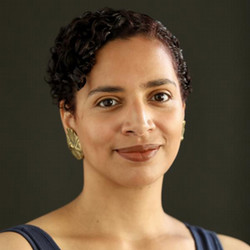 Noémie Ndiaye is an associate professor of English Literature at the University of Chicago with a coterminous appointment in the Department of Romance Languages and Literatures. She works on early modern English, French and Spanish theater with a critical focus on race. Her first monograph "Scripts of Blackness: Early Modern Performance Culture and the Making of Race" (University of Pennsylvania Press, 2022) shows how performance culture helped strategically turn blackness into a racial category across early modern Western Europe. "Scripts of Blackness" won the Medieval and Renaissance Drama Society's 2023 Bevington Award, The British Academy's 2023 Rose Mary Crawshay Prize, the 2023 Shakespeare’s Globe Book Award, the Theatre Library Association's 2022 George Freedley Memorial Award and the Modern Languages Association's 2023 Aldo and Jeanne Scaglione Prize for Comparative Literary Studies.
Noémie Ndiaye is an associate professor of English Literature at the University of Chicago with a coterminous appointment in the Department of Romance Languages and Literatures. She works on early modern English, French and Spanish theater with a critical focus on race. Her first monograph "Scripts of Blackness: Early Modern Performance Culture and the Making of Race" (University of Pennsylvania Press, 2022) shows how performance culture helped strategically turn blackness into a racial category across early modern Western Europe. "Scripts of Blackness" won the Medieval and Renaissance Drama Society's 2023 Bevington Award, The British Academy's 2023 Rose Mary Crawshay Prize, the 2023 Shakespeare’s Globe Book Award, the Theatre Library Association's 2022 George Freedley Memorial Award and the Modern Languages Association's 2023 Aldo and Jeanne Scaglione Prize for Comparative Literary Studies.
Ndiaye is the co-editor, with Lia Markey, of "Seeing Race Before Race: Visual Culture and the Racial Matrix in the Premodern World" (ACMRS Press, available in open access, 2023), which won the Association of American Publishers's 2024 PROSE Award in the "Art Exhibitions" category. She has published articles in Shakespeare Quarterly, Renaissance Quarterly, Renaissance Drama, Early Theatre, English Literary Renaissance, Literature Compass, Thaêtre and in various edited collections.
Speakers
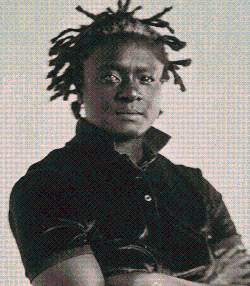
Bintou Dembélé is a choreographer and founder of the Rualité structure, created in 2002. One of the specificities of their work is to articulate creation and research, with a vision of inscribing “marronne” thought and dance in the history of arts and culture. Their performative and filmic works bring together dance, music, voice and visual arts, reuniting popular cultures through ritual and corporeal memories. They are regularly invited as a curator for operas and museums (Centre Pompidou, Musée du Quai Branly, Palais de la Porte Dorée, Opéra de Lille, Opéra de Lyon). In 2019, they choreographed the opera-ballet, Les Indes Galantes, at the Paris Opera. From 2020 to 2022, the co-director of the Ateliers Médicis invited Bintou to be an associate artist and to participate in reflections for the institution's definitive project for 2025. In 2021, they were invited to a writing residency at the Villa Médicis in Rome, followed by the Villa Albertine in Chicago, which Bintou inaugurated. In 2022, Bintou Dembélé received the SACD Choreography Prize.
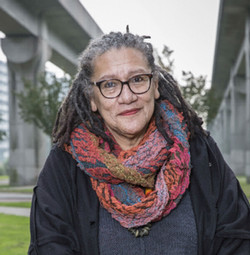
Gloria Wekker is an Afro-Surinamese Dutch cultural anthropologist with specializations in gender studies, sexuality, and African-American and Caribbean studies. She is emerita professor in gender studies at Utrecht University, and a founding member of the Afro-Dutch female group Sister Outsider. Among her noteworthy publications are "The Politics of Passion"; "Women's Sexual Culture in the Afro-Surinamese Diaspora" (2006), for which she received the Ruth Benedict Prize of American Anthropological Association and White Innocence; and "Paradoxes of Colonialism and Race" (2016).
In 2017, she was distinguished as one of the ten most influential academics in the Netherlands. Between 2019-2021, she held the King Willem Alexander Chair for Low Land Studies at the University of Liège, Belgium, and in 2022, the Amnesty International Chair for Human Rights at the University of Ghent, Belgium.
Speakers
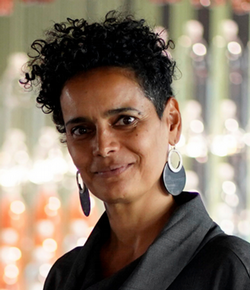
Patti Anahory is an architect working across building, art, education, spatial and curatorial practices. Her work interrogates predominant narratives of identity and belonging across spatial practices, from an African island perspective. Anahory co-founded Storia na Lugar, a storytelling and counter-narrative practice, which exhibited at the 2021 Venice Biennale Architettura and is co-curator of her(e), otherwise, an experimental architectural and curatorial platform that invites African and Diaspora women architects to interrogate notions of representation and belonging. In 2022, she was selected as the alternate for the Civitella Ranieri Foundation Architecture Prize. Her practice is featured in the book ‘100 Women: Architects in Practice’, published by the Royal Institute of British Architects (2023). Anahory is an Academic Advisor at the African Futures Institute, an independent postgraduate center for architectural research in Ghana. Anahory was Visiting Professor at Columbia University (2022-23) and Founding Director of CIDLOT (2009-12), a multidisciplinary research center at the University of Cabo Verde, where she was instrumental in introducing decolonial approaches to a broader research and pedagogical agenda and co-authored the book “Panorama de Arquitetura Habitacional em Cabo Verde.” Anahory holds a Masters in Architecture degree from Princeton University and a professional architecture degree from the Boston Architectural College.
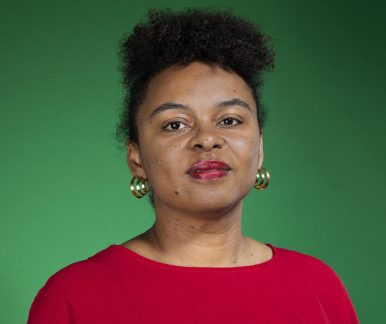
Professor Célestine is a historian and social scientist whose work focuses on migration, memory, race and identity in France, the French Caribbean (Martinique, Guadeloupe) and the United States. Her first book, La Fabrique des Identités is a historical comparison of the collective trajectories of Puerto Ricans in New York and French Caribbeans in Paris since the mid-20th century. It was published in 2018 by Karthala and is currently being translated. She also published "Une famille française. Des Antilles à Dunkerque en passant par l'Algérie" (Textuel, 2018) on the impact of migration, exile, colonization, race and identity in the individual trajectories of 4 generations of an "ordinary" French family. Her latest book entitled Des Vies de Combat. Femmes, Noires et Libres, brings together portraits of Black women from the 19th to the 21st century.

AssaDiallo Doucouré
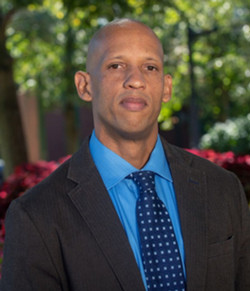
Felix Germain's research focuses are on Black migrations and race relations in France and the United States, as well as contemporary socio-political issues in Haiti and the French Caribbean. He explores topics such as race relations, colonization, decolonization, postcolonial migration and labor relations, and black social movements and gender relations in Africa and the African Diaspora.
His first book, "Decolonizing the Republic: African and Caribbean Migrants in Postwar Paris (1946-1974)", examines the formation of the African Diaspora in France during a period that French historians call "the glorious thirty." It chronicles the evolution of Paris from a space fertile for black literacy and artistic production to a city where Caribbean and African labor migrants lived in quasi "exile," often protesting for better working and living conditions.
 Julio Ludemir was born in Rio de Janeiro, but he grew up in Olinda, Pernambuco. He studied journalism, but never completed the course. He has ten books published, most of them set in the favelas of Rio de Janeiro. He has organized and edited more than 30 books with new authors from Brazil's outskirts, particularly Rio's favelas.
Julio Ludemir was born in Rio de Janeiro, but he grew up in Olinda, Pernambuco. He studied journalism, but never completed the course. He has ten books published, most of them set in the favelas of Rio de Janeiro. He has organized and edited more than 30 books with new authors from Brazil's outskirts, particularly Rio's favelas.
In 2008, "Rim por Rim" was a finalist for the Jabuti, the most important Brazilian literary award. He is one of the screenwriters of "400 contra um", a William da Silva Lima biopic, one of the creators of Comando Vermelho. He is one of the creators of FLUP, a literary festival that in 2016 won the London Book Fair's Excellence Awards. He is also one of the creators of Batalha do Passinho, with which he went to London and New York.

Atesede Makonnen received her Ph.D. in English from Johns Hopkins University in 2022 and her M.A. in Shakespeare Studies from Kings College London in 2014. Her book project, based on her dissertation, “The Actual Sight of the Thing: Visualizing Blackness in Nineteenth-Century British Culture,” investigates the impact of racialized visuality on British culture at the turn of the nineteenth century, exploring how the approaching end of slavery sparked new consideration and wariness of black subjects and gave birth to persistent forms of anti-blackness centered on the concept and act of seeing.
Her research works across periods and media to paint a full picture of how cultural objects contribute to and bolster ideas about race. She has received support from organizations including The American Trust for the British Library, The New York Public Library and the Folger Shakespeare Library, and her work has been published in Studies in Romanticism, European Romantic Review, Symbiosis: A Journal of Transatlantic Literary and Cultural Relations, and Keats-Shelley Journal, and is forthcoming from Victorian Studies, The Cambridge Companion to Romanticism and Race, The Visual Life of Romantic Theatre, 1770-1830.
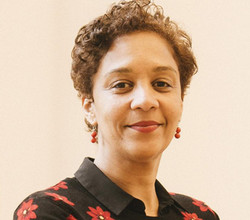
Ayoko Mensah is an art curator, a journalist and a cultural expert. Since 2024, she has been working as a curator at the House of European History in Brussels, Belgium. Previously, she worked as an institutional advisor and arts programmer for the Centre for Fine Arts (BOZAR) in Brussels where she was in charge of the Afropolitan Programme.
Of Togolese heritage, born in France in 1968, Mensah is graduated in Cultural Management (M.A.) at University Paris-Dauphine (France), in Modern Literature (M.A.) at University Sorbonne Nouvelle (Paris) and in journalism (CFPJ, Paris). After having run Africultures review from 2005 till 2008, she worked as an expert for the UE-ACP (African, Caribbean and Pacific) ACPCultures+ programme at the ACP Secretariat in Brussels. Since 2000, Mensah also has worked as a consultant for several organisations (UNESCO, European Commission, EUNIC, Opera de Paris, Royal Museum for Central Africa, International Music Council) and has been invited as a speaker at international conferences in Africa, Europe, in the United States and in China.
In 2022, she gave a seminar to Master's students at Paris 8 University entitled: "Decolonial dynamics of cultural institutions in Europe". She has co-authored several books, amongst others “Houn-Noukoun, Tambours & Visages” (1996), “Faustin Linyekula, choreographer” (2002) ; “A Body To Construct – The new generation of African Performance Artists” (2004); Créations artistiques en pays d’islam (2006); Kultur Afrika (2010); Djoliba, le grand fleuve Niger (2010).
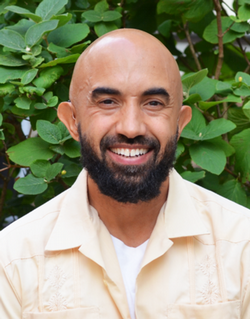
Michael McEachrane is the rapporteur of the UN Permanent Forum on People of African Descent and a senior visiting researcher at the Raoul Wallenberg Institute of Human Rights and Humanitarian Law in Lund, Sweden. He has a Ph.D. in Philosophy from Åbo Akademi University in Finland and has held positions at universities in the U.S., Canada, Trinidad & Tobago, Sweden, Germany and the UK.
His current research focuses on postcolonial/decolonial perspectives on people of African descent, human rights, systemic and structural racial discrimination, and reparatory justice. Among his publications is a forthcoming collection of essays, "Decolonial Sweden" (Routledge, 2024). He is a seasoned international activist for people of African descent, especially at the EU and UN levels, and also a regular commentator on issues of race for Swedish and international media.
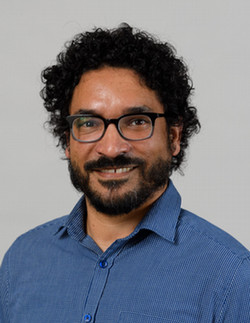
Grégory Pierrot is Associate Professor of English at the University of Connecticut at Stamford where he teaches American and African American literature. His research bears on the cultural networks of the Black Atlantic. He is the author of The Black Avenger in Atlantic Culture (UGA, 2019), co-editor with Marlene Daut and Marion Rohrleitner of Haitian Revolutionary Fictions: An Anthology (UVA, 2021), translator of Philippe Carles and Jean-Louis Comolli’s Free Jazz/Black Power (Mississippi, 2015). He co-edited with Paul Youngquist a scholarly edition of Marcus Rainsford’s An Historical Account of the Black Empire of Hayti (Duke 2013), and recently prefaced two short collections of nineteenth-century short stories in French about the Haitian revolution for L’Harmattan editions. He also co-translated with Jean-Baptiste Naudy La Couleur de l’oubli (The Color of Forgetting), a novel by Merle Collins, and Brent H. Edwards’ Pratique de la diaspora (The Practice of Diaspora), forthcoming at Éditions Rot-Bo-Krik.
He is currently working on a book about Black Power-era fiction, and part of a team of researchers working on a digital edition of the 19th-century, French-language abolitionist review La Revue des colonies, recipient of a NHPRC grant.
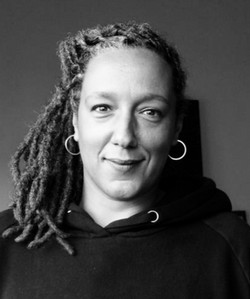
Cristina Roldao is a Portuguese sociologist, a researcher at ISCTE – Instituto Universitário de Lisboa, an assistant professor at the Escola Superior de Educação de Setúbal and a columnist for the newspaper Público. Roldão is an active voice in the academic and public debate on racism, colonial legacies, and blackness in Portuguese society.
She participates in international platforms dedicated to these debates in the European and Brazilian contexts, as a member of the organizing committee of the 7th Afroeuropeans Conference (Lisbon, 2019), of the scientific committee of the 8th Afroeuropeans Conference (Brussels, 2022) and as a member of the Weaving Anti-Racist Networks: Africa(s), Brazil, Portugal (2017). Presently, she is part of the Steering Committee of the Center for Black European Studies and the Atlantic (CBESA, Carnegie Mellon University, 2023). She is co-author, among others, of the recent book "Tribuna Negra: Origins of the Black Movement in Portugal (1911-1933)."